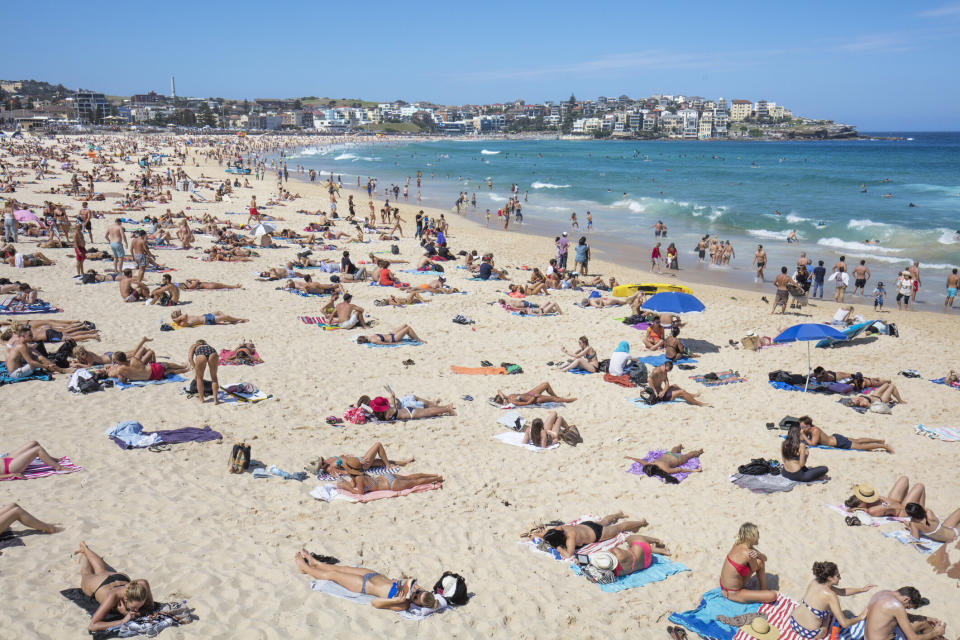Why Australia needs to cut TOURISTS, not just migrants

If the Coalition win the next federal election, Australia’s migration intake would be slashed by 30,000 people per year for the next four years.
One of the main arguments cited for reducing the number of migrants is the amount of overcrowding, congestion and pressure that migrants place on Australia’s infrastructure.
But, according to UNSW Business School adjunct professor Raja Junankar, if we were serious about tackling the issue of overcrowding, we ought to go further.
“If people believe that Australia is overcrowded and congested, we should also consider cutting back on international tourism and the growth of international students in Australian universities!” Junankar wrote in his paper titled ‘Is Australia overcrowded? Immigration and International Tourism’, obtained by Yahoo Finance.
Related story: Halving migration would cost the NSW economy $130bn and 200,000 jobs
Related story: 82 per cent of Australians see the benefits of immigration
Related story: Does Australia need more people? Most Aussies don't seem to think so
Research has shown that immigrants add to economic demand as well as supply, increasing GDP and per capita GDP, Junankar argued.
Not only that, but foreign students often become migrants themselves and therefore contribute their qualifications, skills and experience to the Australian labour force.
Here’s the real problem
Meanwhile, though international tourism doesn’t directly contribute to GDP growth, it does stimulate private business to expand facilities for tourists such as travel services.
“Without international tourism our hotel and restaurant industries would be suffering from a lack of demand and many would have to close down and declare bankruptcy,” Junankar wrote.
Between 1997 and 2015, the number of international tourists rose from 4.2 million to 7.8 million. “It is clear that international tourists make a huge impact on Australian society and economy.”
However, tourists also impose costs on Australian society in terms of congestion and the consumption of non-renewable resources such as fossil fuels, according to the professor.
“Not only do they add to crowded public transport, demand for housing, such as Airbnb, they also consume environmental resources, such as the water hotels spend on frequently washing their sheets.”

“Economically, if any person living in Australia drains a certain amount of resources, it stands to reason this is also the case with short-term visitors arriving year after year,” Junankar said.
Less tourists could mean more migrants
Junankar’s analysis of annual consumption expenditures of tourists compared to annual consumption expenditures of migrants found Australia could play host to nearly a million more migrants if we stopped letting in international tourists.
Put another way, Australia’s international tourists were using up the same amount of resources as 900,000 migrants.
“If the argument is that we should cut down on immigration because Australia is too crowded and congested then we would have to introduce policies to curtail international tourism,” he said.
“However, that is clearly not a sensible policy as many of our domestic industries rely on international tourism. Similarly, we should not consider policies to curtail immigration as it would be harmful for the economy!”
“Immigration and international tourism both have positive effects on the Australian economy,” Junankar concluded.
Make your money work with Yahoo Finance’s daily newsletter. Sign up here and stay on top of the latest money, news and tech news.

 Yahoo Finance
Yahoo Finance 
